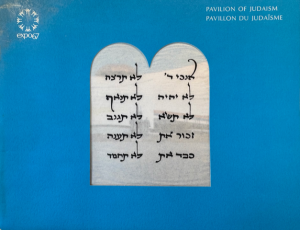MONTREAL — Arieh Perecowicz stopped fretting about the cost of appealing his recent conviction for carrying contraband items in his taxi the moment he heard last Tuesday morning that a prominent law firm would take it on pro bono as a possibly precedent-setting Charter case.
“I’m ecstatic,” the 66-year-old taxi driver told The CJN only minutes after the law firm of Borden Ladner Gervais (BLG) notified him. “I feel like a new person – reborn.”
The law firm agreed to represent Perecowicz in Quebec Superior Court at no charge in an effort to overturn his recent Municipal Court conviction for having items in his taxi not related to his job under Bylaw 98 of the municipal taxi code.
They included Jewish religious items, even though Perecowicz had testified that he kept them in his cab as part of his religious “belief.”
Municipal Court Judge Dominique Joly, however, decided that Perecowicz did not “discharge his burden of proof” in his religious freedom argument.
Careful not to reveal his hand, lawyer Mark Phillips, who will represent Perecowicz in court, would only say that “Charter grounds” with respect to religious freedom would be raised in the appeal.
“BLG is one of the leaders in pro bono work,” Phillips wrote in an e-mail exchange with The CJN last week. “There are a number of criteria, [but] in short, we take on cases where we feel it is important to make a contribution to the community for a good cause, [and] where the client is unable to pay our normal fee.”
He said his next step would be to file a notice of appeal.
Perecowicz said he was on pins and needles over the Feb. 26-27 weekend as a special BLG committee considered the merits of taking on the case for free. He said that even though he was determined to appeal his conviction, he couldn’t afford it on his own and had no legal representation.
“This shows that this is a case with national importance,” Perecowicz said. “It is not only about my rights, but everybody’s rights.”
Perecowicz had visited the law firm a week earlier to discuss the merits of the case with BLG’s pro bono committee. He was accompanied by Abby Shawn, chair of Quebec Jewish Congress’ (QJC) human rights committee.
“We’re very pleased with [BLG’s] decision,” Shawn said in an interview from Florida. “Obviously they find from a legal standpoint there’s a lot of interesting questions both on an administrative and human rights constitutional level.”
Shawn said that while the freedom of religion and freedom of expression issues raised in Perecowicz’s case bore some resemblance to a well-known local case almost a decade ago, in which Jewish owners of condos were forbidden to erect sukkahs on their balconies, there are other issues at play now. (In 2004, the Supreme Court sided with the condo owners.)
“On [religious freedom and freedom of expression], there’s definitely some precedent,” Shawn said.
“But when you’re talking about the real issue, the specific issue in this case about what you’re allowed to exhibit in a taxi, whether a taxi is a ‘man’s castle,’ [as well as] how much of your religious freedom you’re allowed to exercise and how much the state is allowed to step in and limit those freedoms – I think that that’s really going to have be decided really specifically on the facts of this case.”
Phillips has significant experience in constitutional litigation.
He most recently won a case on religious freedom grounds in which private Catholic Loyola High School was ruled to be exempt from the ethics and religious culture program imposed on all Quebec schools by the Education Ministry.
Phillips said that in May, he will be arguing a case before the Supreme Court in which “certain parents are seeking an exemption for their children from the same program.”






